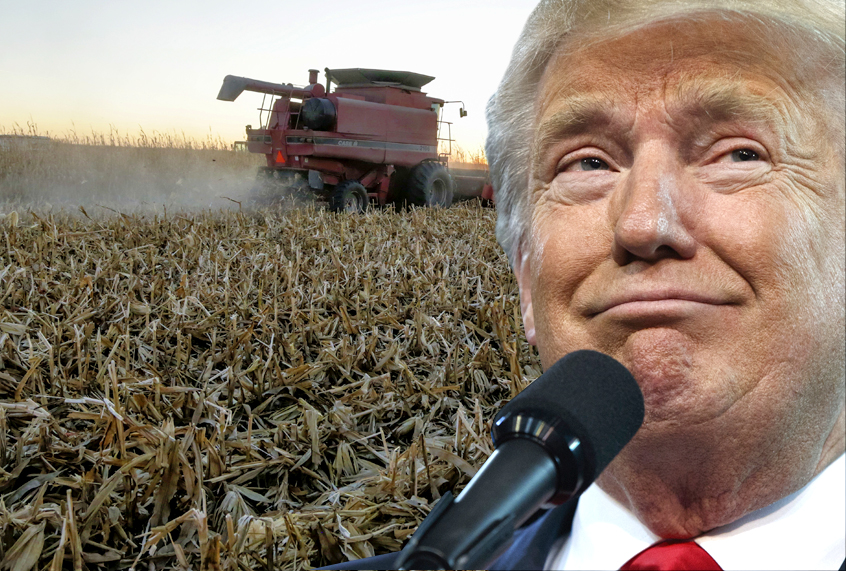A new report by the Commerce Department reveals that President Donald Trump’s trade war has caused personal income for farmers to drop by the most in three years.
As Bloomberg reported on Monday:
The Commerce Department on Monday cited the steep decline in farm proprietors’ income as a key factor weighing on the nation’s overall personal income growth in March, even though agricultural producers represent only about 2 percent of total employed Americans.
The Commerce Department’s report identified a number of factors that have caused the dip in farmers’ income including natural disasters, the lowering of commodity prices and ramifications of Trump’s trade war with China.
In order to offset the deleterious effects of Trump’s trade war on American farmers, the White House passed a $12 billion relief package last year that helped farmers responsible for producing cotton, hogs, soybeans, wheat and other agricultural products which were hit hard.
“Early on, the President instructed me, as Secretary of Agriculture, to make sure our farmers did not bear the brunt of unfair retaliatory tariffs. After careful analysis by our team at USDA, we have formulated our strategy to mitigate the trade damages sustained by our farmers. Our farmers work hard, and are the most productive in the world, and we aim to protect them,” Secretary of Agriculture Sonny Perdue explained in a statement.
Trump has long focused on America’s trade policies as a cornerstone of his economic agenda. Even though no president from either party had been a protectionist since Herbert Hoover in the 1930s, Trump focused on his belief that America was being taken advantage of by other countries when it came to trade issues and has pushed toward aggressive policies against nations like China that he believed were benefiting at America’s expense. This was in spite of the fact that economic experts were concerned Trump’s approach would eventually hurt America’s most vulnerable populations, including farmers.
“China’s targeted, retaliatory tariffs on soybeans, meats, and other farm commodities will hammer American farmers already suffering from low farm prices. And China’s new duties on imports of U.S. vehicles — which have been surging in recent years — will now make it harder for American plants and workers to compete in that key market,” Ed Gerwin, a senior fellow for trade and global opportunity at the Progressive Policy Institute, told Salon in July.
He added, “President Trump has made a big deal about the benefits of recent tax cuts for business and average Americans. But he can’t hide the fact that these escalating tariffs are tax increases that will hurt American competitiveness, cost consumers and destroy jobs.”
The Washington Post editorial board also issued a warning last July regarding the potential ramifications of Trump’s trade war.
By delegitimizing such alliances and institutions, all of them created under U.S. auspices in the postwar era to help prevent global economic competition from fueling international conflict, Mr. Trump takes U.S. foreign policy generally back to the Smoot-Hawley era. That was a time when trade wars were liable to turn into real wars, a lesson of history that Mr. Trump has obviously failed to learn.

